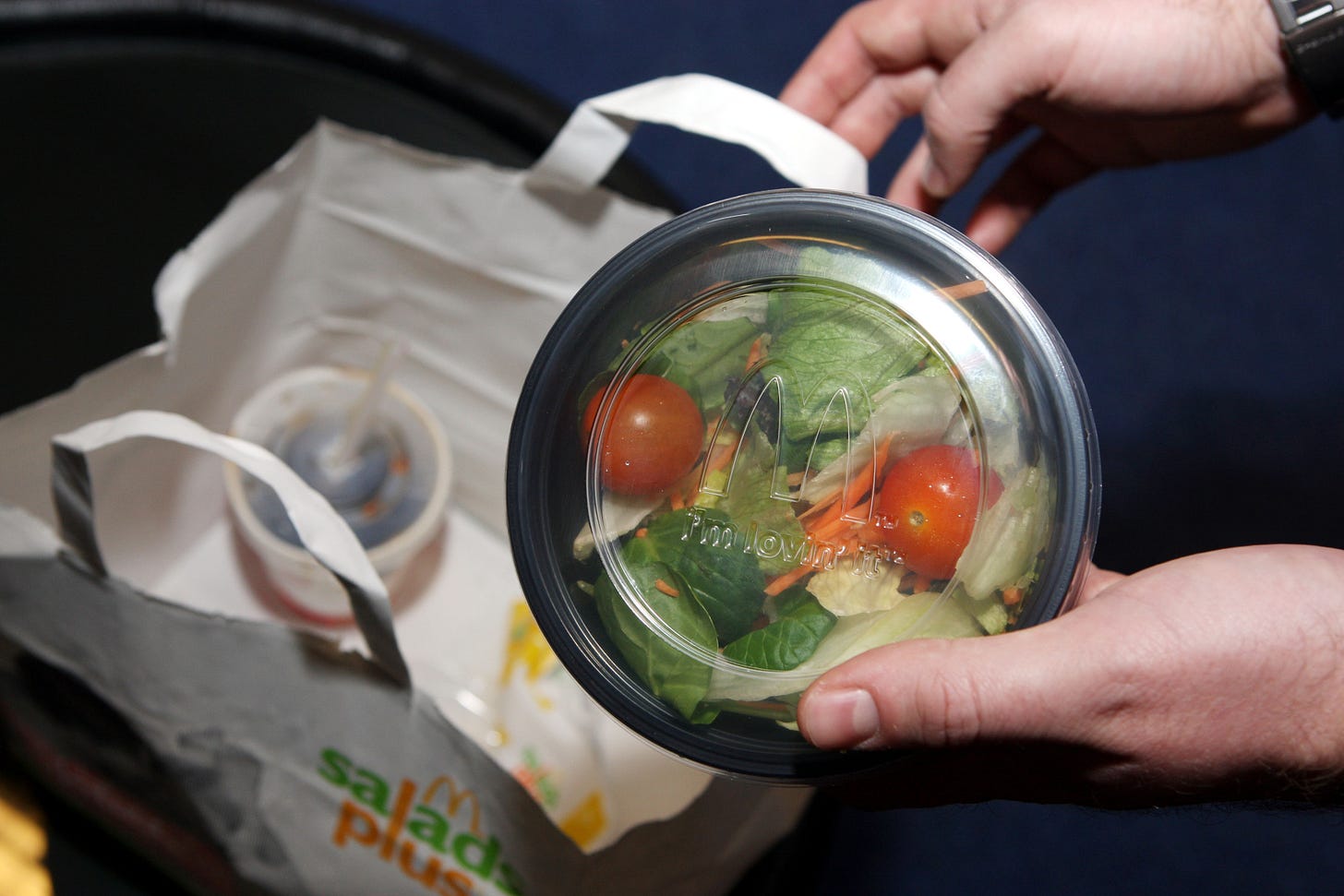The danger of side salads
When corporate do-gooding actually makes things worse

Hello, Inklings!
I hope you’ve had a good week. I’m headed to the beach in a mask tomorrow. As Michelle Obama would say, “It is what it is.”
A quick thought for you, in the meanwhile.
For some time now, I have heard the same response to my critique of plutocrats and corporations and their gestures of do-gooding. Again and again, people push back with an a…



